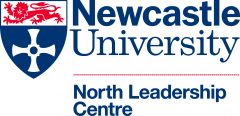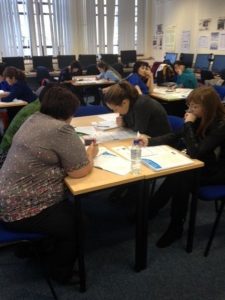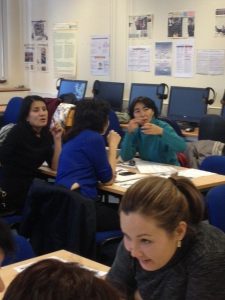Twenty Bachelor students from Taraz State Pedagogical University, Kazakhstan developed their understanding of concepts such as ‘leadership’ and ‘management’ as part of an international seminar series in the second week of November. The students worked with the executive director of the Newcastle University North Leadership Centre (NUNLC), René Koglbauer, who has taken up a Visiting Professorship in Kazakhstan during winter semester 2018.
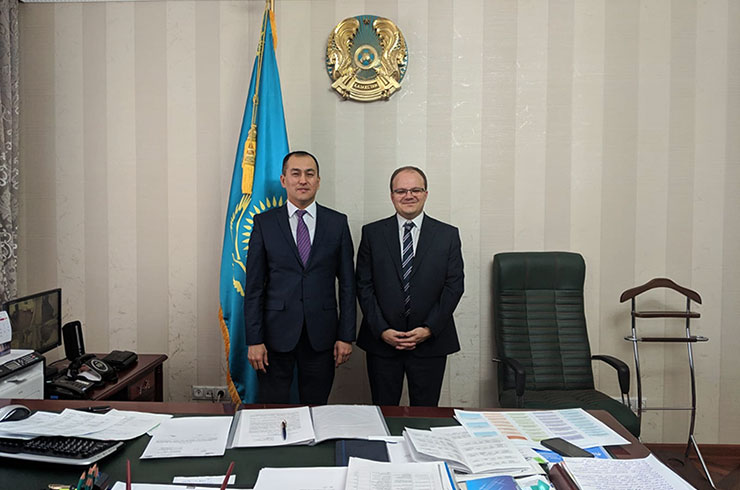
At the beginning of the programme, the students reflected on the differences between the English and the Kazakhstani school systems and were surprised that there was no British school system as the four nations (England, Northern Ireland, Scotland and Wales) had their own systems. The students were then also encouraged to reflect on their own leadership and management skills starting out with a discussion about their values. Whilst none of them can yet imagine that they would ever lead a school, a few students recognised early on that they had leadership skills and tend to adopt the role of a leader when working in teams.
Whilst a few of the students were able to converse in English and gained confidence in contributing in their third language, the support of a fellow BA student, Altybayeva Nazgulya, and her ability to interpret, was paramount to the success of the seminar. The students found the seminar engaging and reflected positively about the different approach that René Koglbauer took: The application of the theoretical knowledge through activities and critical reflections helped the students to gain knowledge but also learn about themselves and their leadership potential. One of the students summarised the success of the seminar with the words; “Tell me – and I will forget; show me – I will remember; Let me do – and I will understand. The used methodology of these seminar sessions has made me understand as I was allowed to try it all out.”
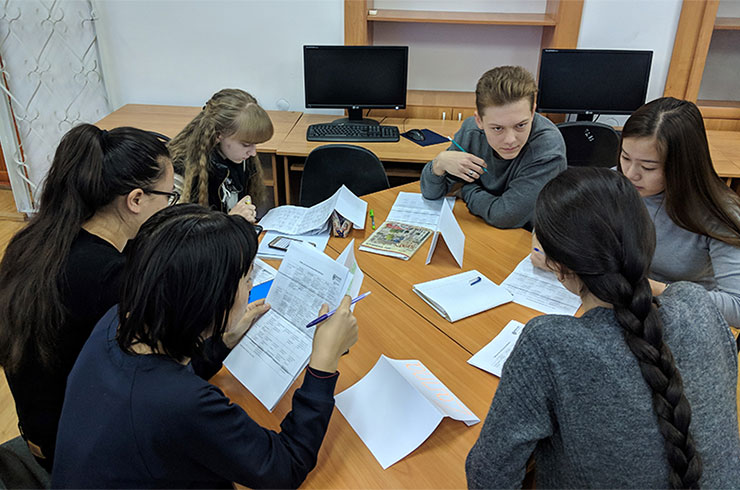
René Koglbauer commented on the students’ contribution: “Whilst there was initially a language barrier, through skilful interpretation and the various activities, students were not only actively engaged but also contributed to discussions well. Following a group task, where they were asked to build a paper tower, the students critically reflected on the success of their teams by drawing on their learning from previous seminar sessions. This demonstrated to them and me that they not only understood the content theoretically but could apply it practically, too.”
The students also recognised that they required greater linguistic competences in English in order to learn about other countries’ approaches to teaching and learning. The fact that they were encouraged to communicate and debate with each other was also reflected upon positively; with one student putting it as follows, “Through your lessons I learnt how to communicate with people”; and another student added, “Through debates we got to know each other’s opinions and at times we even disagreed. This was good as it challenged our own thoughts and id
